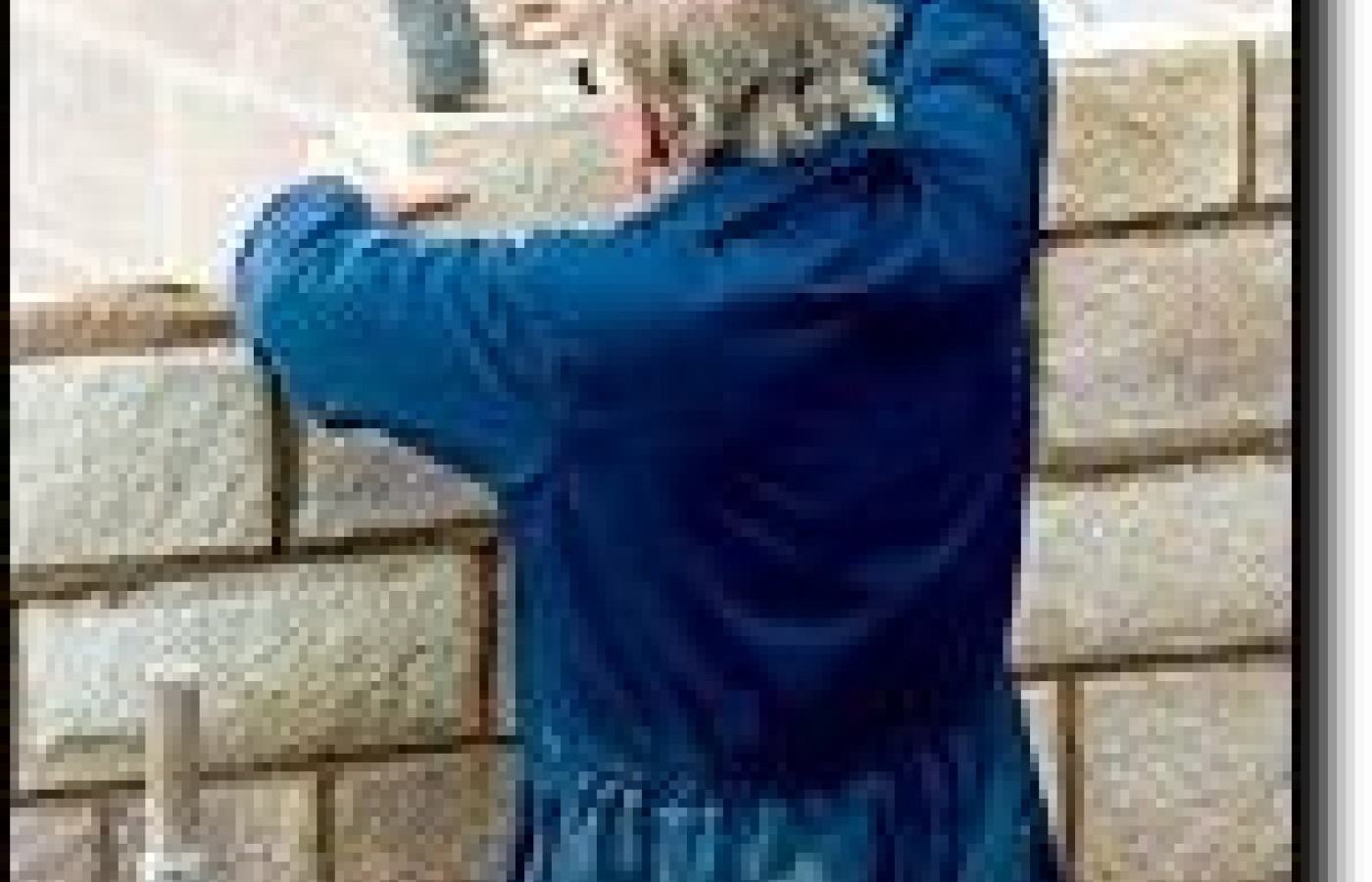The most important relationship I seek to nurture in the treatment room is the one a patient has with their own body. We live in a culture that teaches us to override pain, defer to outside authority, and push through discomfort. Patients often arrive hoping I can “fix” them, but the truth is, we can’t do the work for them. We can offer guidance, insight and support, but healing requires their full participation.
Stonewalling Patient Choice
Only a few months ago, the American Medical Association (AMA) announced the establishment of the Scope of Practice Partnership,1 a conglomeration of state medical associations and specialty groups created, according to one association newsletter, "to marshal the medical community's resources against the growing threat of expanding scope of practice for allied health professionals."
If the Scope of Practice Partnership wasn't ominous enough, on June 27, 2006, Oklahoma Rep. John Sullivan introduced House Resolution 5688, the "Healthcare Truth and Transparency Act," in Congress. Commenting on the new legislation, Rep. Sullivan said, "All health care providers are of vital importance to our nation's health care system, but people should not be confused about whether or not they are seeing a trained and licensed medical doctor. False and misleading advertising is fueling patient confusion. This bill will protect patients from providers who aren't being clear about their qualifications."2
Analysis of H.R.5688

The Health Care Truth and Transparency Act would make it unlawful for any licensed health care provider who is not a medical doctor, doctor of osteopathy, doctor of dental surgery or doctor of dental medicine to "make any deceptive or misleading statement, or engage in any deceptive or misleading act, that deceives or misleads the public or a prospective or current patient" into thinking that the provider is an MD, osteopath or dentist, or possesses the same education, skills or training. Deceptive or misleading statements would include "advertising in any medium, making false statements regarding the education, skills, training, or licensure of such person, or in any other way describing such person's profession, skills, training, experience, education, or licensure in a fashion that causes the public, a potential patient, or current patient" to believe the provider is a medical doctor, osteopath or dentist.3
Licensed health care providers who violate the act would be subject to charges of participating in an "unfair or deceptive act" brought about by the Federal Trade Commission. Any provider found guilty of knowingly participating in an unfair or deceptive act would be subject to civil penalties of up to $10,000 per violation.
The act also directs the FTC to conduct an investigation of all health care providers who engage in "deceptive or misleading" acts to determine how frequently they occur, and to identify any instances of harm or injury resulting from said acts. In addition, as part of the investigation, the FTC is charged with identifying instances "where any state public policy has permitted such acts and practices."
The Coalition for Healthcare Accountability, Responsibility and Transparency (CHART)
On the very same day H.R.5688 was introduced in Congress, a new group of medical and dental organizations called the Coalition for Healthcare Accountability, Responsibility and Transparency (CHART) released the results of a survey claiming the majority of Americans are unaware of the differences in the training and education between medical doctors and other licensed providers of health care services. The CHART survey findings, released June 27, allege that there is "significant confusion" among the American public about the qualifications of health care providers.
"The AMA is one of the 10 organizations that comprise CHART, and one of six organizations to have an official relationship with both CHART and the Scope of Practice Partnership,"2 explained Dr. Rebecca Patchin, a member of the American Medical Association's board of trustees. CHART's members include the AMA, the American Academy of Ophthalmology (AAO), the American Academy of Otolaryngology-Head and Neck Surgery (AAOHNS), the American Psychiatric Association (APA), the American Dental Association (ADA), the American Society of Anesthesiologists (ASA), the American Osteopathic Association (AOA), the American College of Surgeons (ACS), the American Society of Cataract and Refractive Surgery (ASCRS), and the American Academy of Orthopedic Surgeons (AAOS). Five of those organizations - the AAO, AAOHNS, APA, ASA, and AAOS - are also charter members of the Scope of Practice Partnership.
According to an article in the Tulsa World, Dr. Patchin declined to identify any specific group of health care providers that may be affected by H.R.5688. She also declined comment when asked whether the survey's results indicated that the "problem" might be more an issue of public ignorance than any action(s) taken by a particular group.4
Calls placed to the public relations firm representing CHART were not returned as this article went to press, and Acupuncture Today was unable to obtain a copy of the CHART survey to examine its methodology. An e-mail sent to the AMA regarding Dr. Patchin's comments also went unanswered as of press time.
Putting the Pieces Together: H.R.5688's Sponsors Linked to CHART, Organized Medicine
Rep. Sullivan and the five congressional co-sponsors of H.R.5688 have direct ties to the medical community. A review of Rep. Sullivan's recent legislative actions revealed that while the Health Care Truth and Transparency Act represents may represent his boldest effort to target the qualifications and practice rights of health care providers who aren't medical doctors, it is not his first.
In November 2003, Sullivan introduced the Veterans Eye Treatment Safety Act, which would have mandated that only medical doctors and doctors of osteopathy be allowed to perform eye surgery at any Department of Veterans Affairs facilities or under contract with the Department of Veterans Affairs. The law was introduced after it was discovered that an optometrist licensed in Oklahoma had performed glaucoma- and cataract-related laser eye surgery at a VA medical facility in Kansas, which was in keeping with the agency's local facility privileging policy allowing health care providers to practice up to the limits of their state licenses, regardless of the facility's location. When the bill was introduced, 49 states prohibited optometrists from performing laser eye surgery. Ironically, the only state that allowed the procedure at the time was Oklahoma.5
According to the Center for Responsive Politics, the health care industry was one of the largest contributors to Sullivan's 2004 congressional campaign. Sullivan received more than $68,000 in campaign contributions from various health care organizations, including $10,000 from the AMA, $10,000 from the American Academy of Ophthalmology, and $7,000 from the American Society of Anesthesiologists.6
Two of the co-sponsors of H.R.5688 appear to be directly linked to CHART and the Scope of Practice Partnership. Rep. Michael Burgess (R-TX) is a 1977 graduate of the University of Texas Medical School at Houston. He founded an obstetrics and gynecology practice in Lewisville, Texas, and is a former president of the Denton County Medical Society. Dr. Burgess is also a member of the Texas Medical Association. That association's delegation introduced the original resolution calling for an examination of "limited-licensure health care providers" at the AMA House of Delegates interim meeting in November 2005. Nine of the 10 organizations in CHART contributed to Burgess' 2004 congressional campaign, donating more than $52,000.
Rep. Joe Schwarz (R-MI) has been a practicing physician since the 1970s. He is a fellow of the American College of Surgeons and a member of the American Academy of Otolaryngology-Head and Neck Surgery - both of which are founding members of CHART. In its 2005 annual report, the academy listed the election of Dr. Schwarz to Congress as one of its "Top Ten Accomplishments for 2005." CHART members donated more than $49,000 to help Schwarz get elected to Congress in 2004.
The bill's other three co-sponsors also have received significant campaign contributions from CHART members in the past few years. Rep. Pete Sessions (R-TX) received $49,500 from CHART members in 2004, including $10,000 each from the AMA, the AAO and the ASA. Rep. Charlie Bass (R-NH) received $14,000 in campaign contributions for his 2004 campaign. And Rep. Michael Bilirakas (R-FL) received contributions from all 10 CHART members in 2004, totaling more than $60,000.
References
- AMA moves to thwart expansion of alternative health care. Acupuncture Today, July 2006.
- "Physician and Dentist Coalition Announces Support for Health Care Truth and Transparency Act of 2006. PRNewswire press release, June 27, 2006. Click to view it online.
- The Healthcare Truth and Transparency Act of 2006. Available online at http://thomas.loc.gov.
- Myers J. "Bill Seeks to Clarify Who Are Doctors." Tulsa World July 2, 2006.
- "Congressman John Sullivan Introduces Legislation to Improve Veterans' Health Care." U.S. House of Representatives press release, Nov. 10, 2003. Click to view it online.
- Center for Responsive Politics. www.opensecrets.org.



